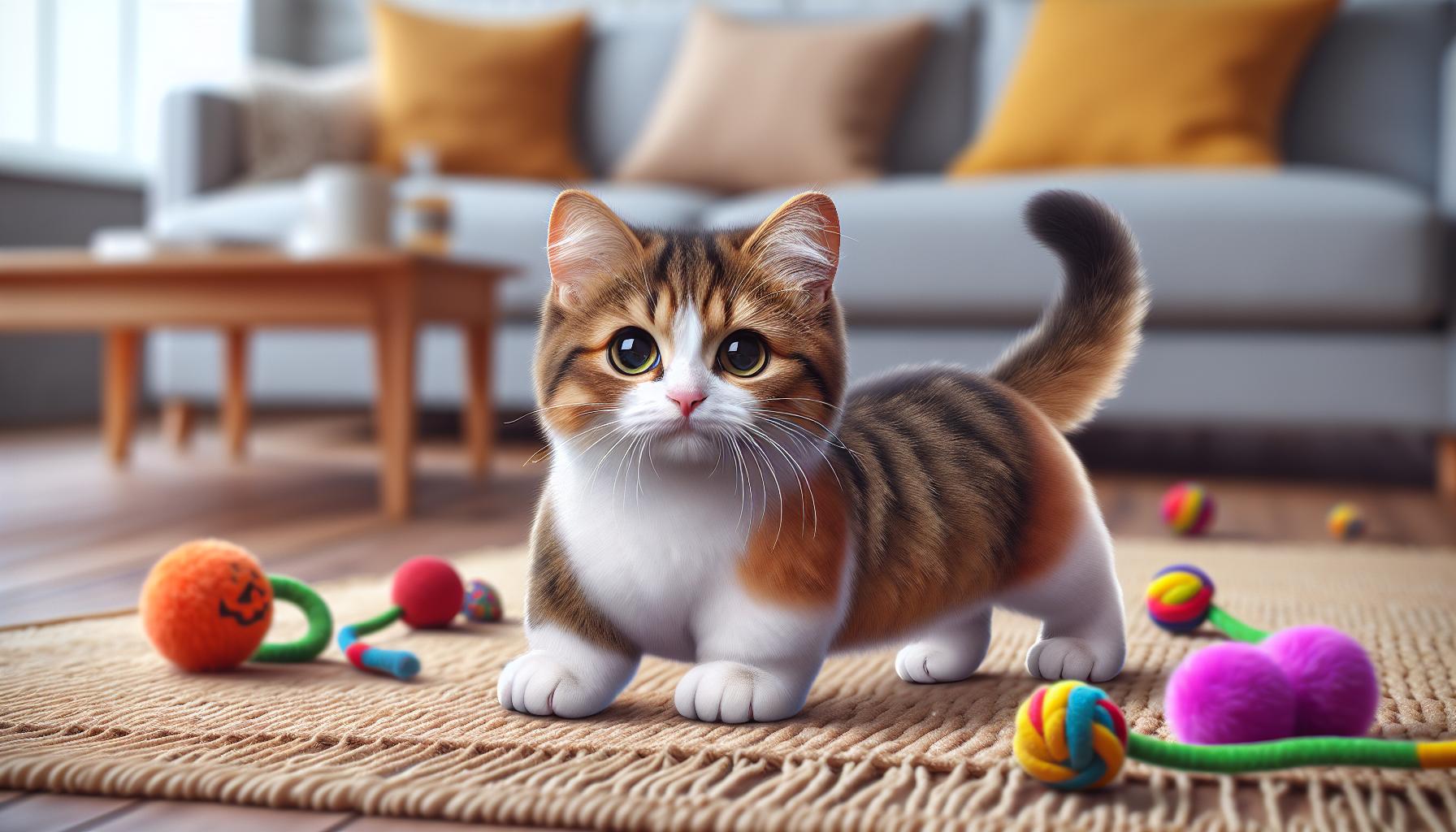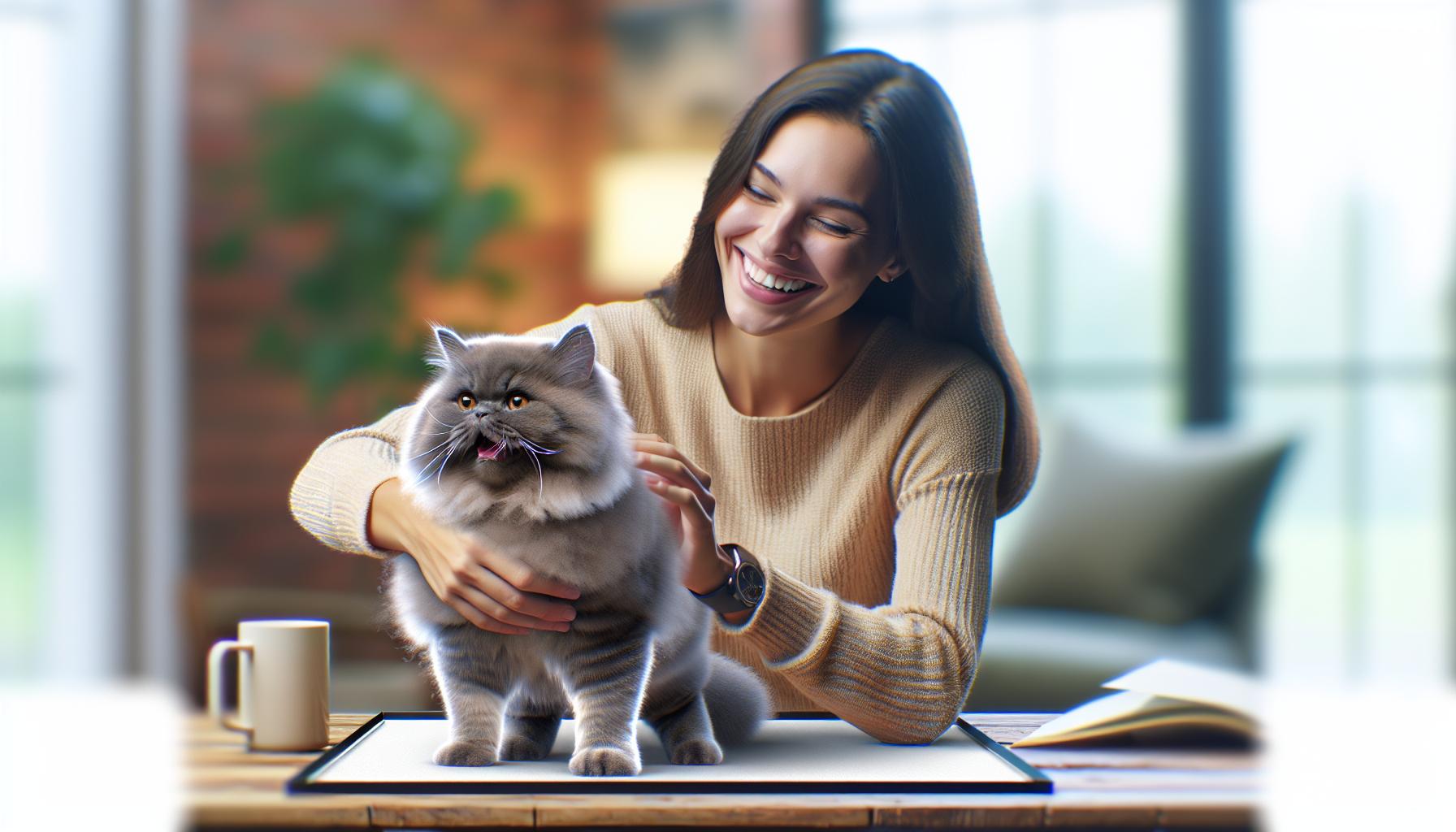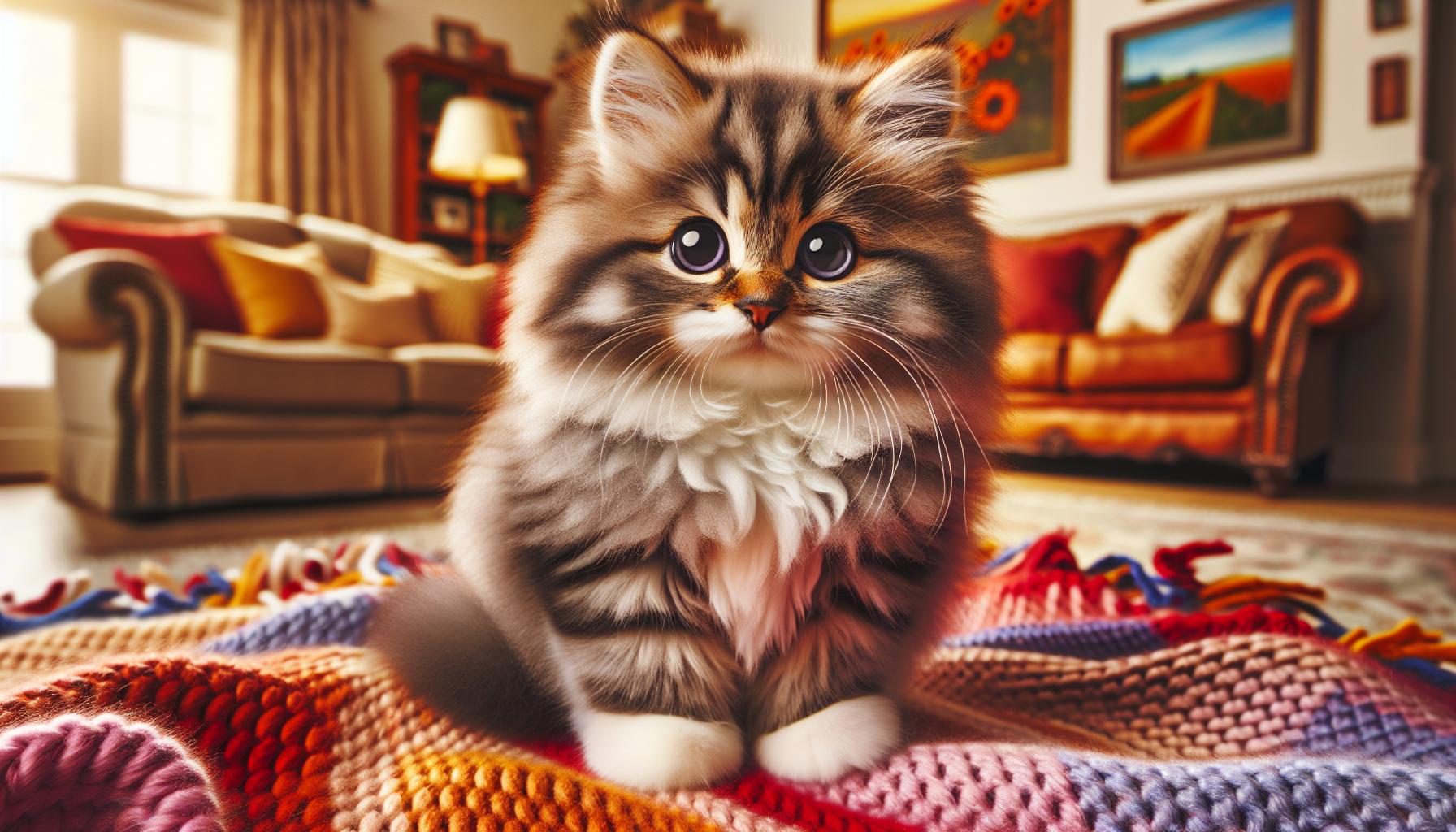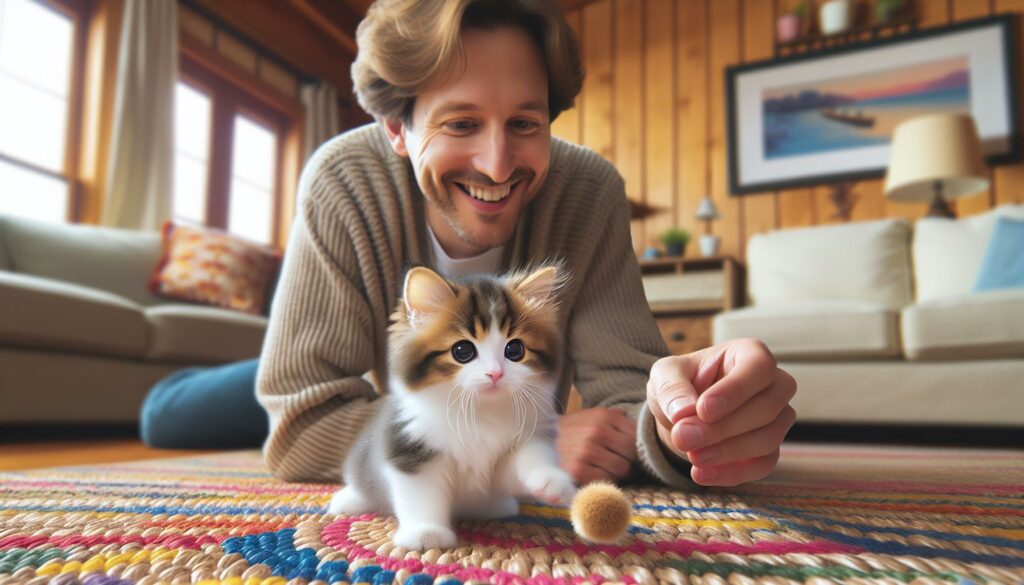If you’re captivated by unique feline traits, the Munchkin cat will steal your heart. With their adorable short legs and playful personalities, these little furballs bring a special charm to any home. I’ve always been fascinated by how their distinctive appearance doesn’t hinder their agility or playful spirit.
Munchkin cats are more than just a quirky breed; they’re known for their affectionate nature and intelligence. Whether you’re a seasoned cat owner or considering bringing a new pet into your life, understanding the Munchkin’s characteristics and needs is essential. Join me as we dive into the delightful world of Munchkin cats and discover what makes them such a beloved choice for cat lovers everywhere.
Key Takeaways
- Unique Appearance: Munchkin cats are characterized by their adorable short legs, giving them a distinctive and charming look without hindering their agility.
- Playful & Affectionate: Known for their lively personalities, Munchkin cats are social and affectionate, forming strong bonds with family members and enjoying interactive play.
- Health Awareness: Regular veterinary check-ups and a balanced diet are vital for Munchkin cats, as they may face specific health issues like lordosis, hernias, and obesity.
- Grooming Needs: Depending on their coat type, Munchkin cats require regular grooming—short-haired versions need weekly brushing, while long-haired ones benefit from bi-weekly care.
- Dietary Requirements: A balanced diet focused on high-quality cat food with real meat is crucial to maintain their energy levels and overall health, along with fresh water availability at all times.
Baby:ypoce4qxeow= Munchkin Cat
The Baby:Ypoce4qxeow= Munchkin cat showcases distinct characteristics that set it apart from other cat breeds. Short legs define its appearance, giving it a unique and endearing look. This breed possesses a playful and energetic personality, often engaging in activities that entertain both itself and its owners.
Affectionate behavior marks the Baby:Ypoce4qxeow= Munchkin. It thrives on human interaction and bonds closely with family members. These cats demonstrate intelligence through curiosity and a willingness to learn, making them trainable companions.
Health-wise, Munchkin cats generally exhibit good vitality. Regular veterinary check-ups and a balanced diet contribute to their well-being. It’s crucial to provide mental stimulation and physical activity to maintain their happiness.
In terms of grooming, the Baby:Ypoce4qxeow= Munchkin cat’s coat varies between short and long haired. Both types require routine brushing to prevent matting and manage shedding. Regular grooming helps maintain their overall health and appearance.
Adopting a Baby:Ypoce4qxeow= Munchkin cat means welcoming an affectionate and lively addition to the home. Their playful nature, combined with their loving disposition, solidifies their place as a cherished member of any family.
Unique Characteristics of Munchkin Cats

Munchkin cats are distinct for their unique attributes, most notably their short legs and lively personalities. Understanding these traits helps clarify why they captivate so many pet lovers.
Physical Traits
Munchkin cats possess remarkable physical characteristics, primarily their short stature due to a genetic mutation. Most Munchkins stand between 5 to 7 inches tall and weigh around 5 to 9 pounds. Their legs are notably shorter than other breeds, giving them a unique appearance but no difficulty in movement. Munchkins come in a variety of coat lengths—both short-haired and long-haired variations are common. Their coats can be any color or pattern including tabby, solid, or spotted, enhancing their visual appeal.
Personality and Temperament
Munchkin cats exhibit a playful and affectionate nature, often described as sociable and attention-seeking. They form strong bonds with their humans and typically thrive in interactive environments. Known for their intelligence, Munchkins enjoy engaging in play and solving puzzle toys. Their friendly demeanor makes them compatible with children and other pets, adding to their allure as family companions. Munchkins also maintain a curious disposition, often exploring their surroundings and entertaining themselves with various activities.
Care Requirements

Caring for a Munchkin cat involves attention to its dietary, grooming, and health needs. Understanding these aspects ensures a happy and healthy pet.
Diet and Nutrition
Munchkin cats require a balanced diet to maintain their energetic lifestyle. I recommend high-quality cat food, delivering adequate protein and essential nutrients. Focus on dry or wet food with real meat as the primary ingredient. Portion control is essential; adult Munchkin cats typically consume about 1/4 to 1/2 cup of kibble daily, divided into two meals. Fresh water must always be available, as hydration supports overall health. Regularly consulting with a veterinarian can help adjust dietary needs based on age, weight, and activity level.
Grooming Needs
Grooming Munchkin cats depends on their coat type. Short-haired Munchkins need brushing once a week, while long-haired versions benefit from bi-weekly grooming to prevent matting and manage shedding. I suggest using a slicker brush or a grooming glove for effective results. Regular grooming not only maintains coat health but also strengthens the bond between you and your cat. Additionally, routine dental care and nail clipping contribute to overall health. Establishing these grooming habits early in life encourages comfort and cooperation during the process.
Health Considerations

Health considerations for Munchkin cats play a crucial role in ensuring their well-being and longevity. Maintaining awareness of potential health issues and committing to regular veterinary care can optimize their quality of life.
Common Health Issues
Munchkin cats, due to their unique genetic makeup, may face specific health concerns.
- Lordosis: A spinal condition that can occur due to the shortness of their legs, resulting in an abnormal curvature of the spine.
- Hernia: Munchkins may be prone to both umbilical and inguinal hernias, which require veterinary evaluation and possible surgical intervention.
- Hip Dysplasia: This joint condition arises from abnormal hip joint formation, leading to pain and mobility issues as the cat ages.
- Obesity: With a propensity for less activity, proper weight management is essential, as obesity can exacerbate other health risks.
Understanding these potential health issues enables proactive care and early intervention.
Regular Veterinary Checkups
Regular veterinary checkups are essential to monitor the health of Munchkin cats.
- Annual Exams: Schedule annual visits for a thorough examination, vaccinations, and health assessments.
- Dental Health: Incorporate dental health checks to prevent periodontal disease, crucial for overall well-being.
- Weight Monitoring: Ask your vet to track their weight and recommend dietary adjustments if necessary.
These checkups help identify any health concerns early, ensuring that Munchkin cats remain active and healthy companions.
Wonderful Pets For Families And Individuals
Munchkin cats are truly a delightful breed that brings joy and companionship into any home. Their playful nature and affectionate demeanor make them wonderful pets for families and individuals alike. With the right care and attention to their unique needs, these little furballs can thrive and become cherished members of your family.
By understanding their health requirements and grooming needs, you can ensure your Munchkin cat leads a happy and healthy life. Whether you’re captivated by their short stature or their lively personality, welcoming a Munchkin into your life is sure to be a rewarding experience.

